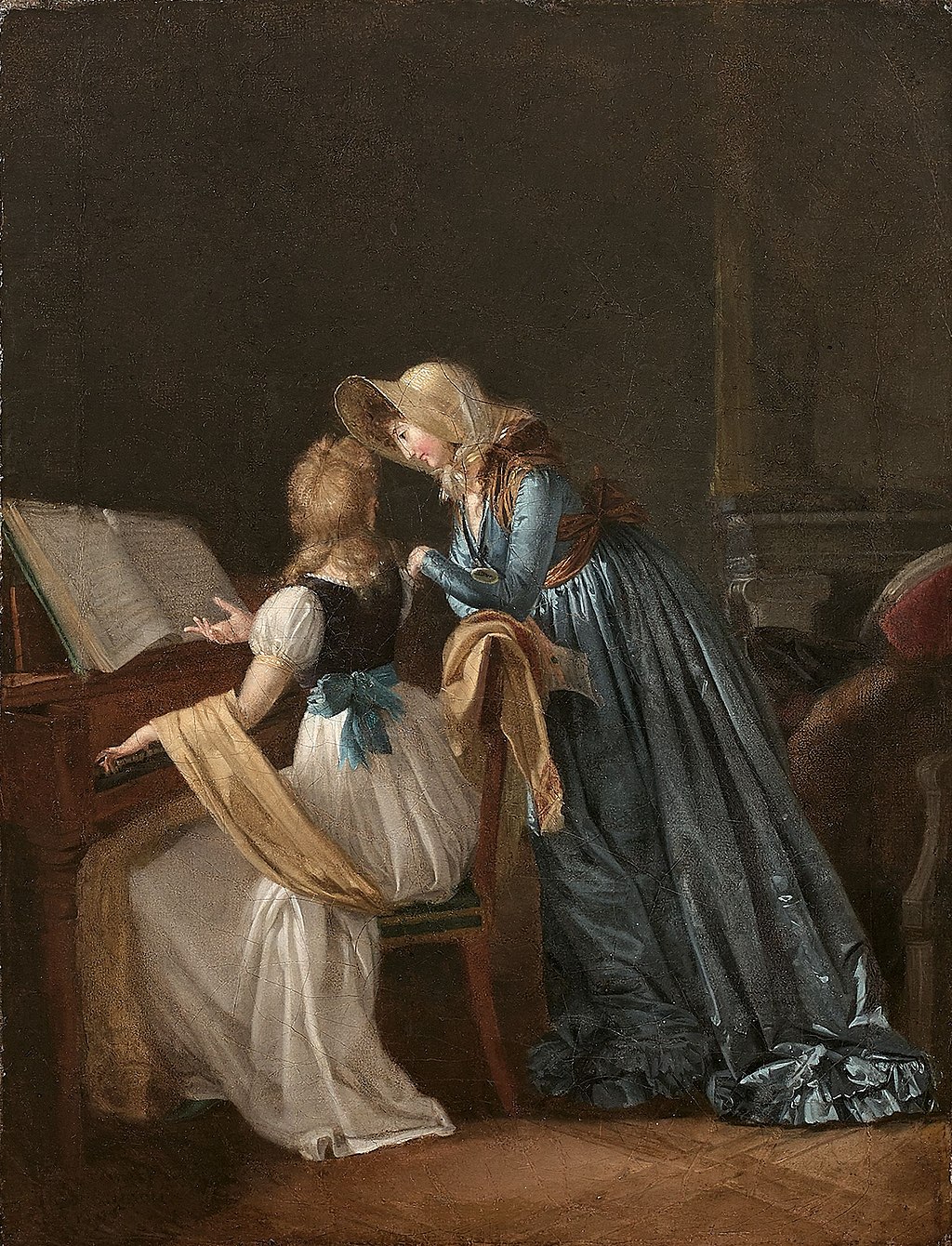Children and those who wanted to play an instrument either learned at home from their parents, from relatives, or by instruction from private tutors or traveling music masters.
In September 1792, Mr. S. Balentine arrived in Carlisle where he proposed to stay for several months and give music lessons on the violin, German flute, Hautboy, Clarionett, bassoon, trumpet, French horn, and guitar. He advertised that he also transposed music for “the guitar, setts, or Figures for the Basses for the Harpsichord, Spinnet, or Forte piano for those who may not choose to become pupils…”1
Mr. Pies, who came to Carlisle in 1803 to teach dancing, advertised that he also would “dedicate part of his time to the instruction of 6 to 8 men on the violin.”2
Those wishing to purchase violin bows, tail pieces, bridges, and strings of all sorts as well as other musical instruments and sheet music, could buy them at Archibald Loudon’s bookstore on West High Street. He also carried a large selection of songs set to music such as “A bonny fiddler’s bride I’ll be, “Black eye’d Susan,” “A down in the valley,” “At the peaceful midnight hour,” etc.3
The piano-forte was a fashionable as well as valuable instrument in the houses of the well-to-do in the eighteenth and early nineteenth centuries. To illustrate, Ironmaster Michael Ege died in 1815, and an inventory was taken of the possessions in his house in Carlisle. The total value of the first thirteen line items in his inventory was $247. They included a venetian carpet, three mahogany dining tables (a set), one mahogany stand, two large red Japanned waiters, one ornamented gilt looking glass, andirons, shovel, tongs and brush, two snuffer trays, a framed likeness of General George Washington, one mahogany spice box, four brass candlesticks, one set of silvered table castors, a silvered soup ladle and one dozen teaspoons. His piano-forte alone was valued at $250.4
Young ladies of good breeding were encouraged to play the piano-forte. Mary Hamilton, the daughter of Judge James Hamilton of Carlisle, was nine-years old in 1805 when she was sent to school in Philadelphia and was expected to learn to write an elegant hand, to play the piano-forte, to study the arts, and to learn to dance. 5 When Mary was twelve-years old, her parents decided to send her to a different school in Philadelphia but “in the meantime,” her mother wrote, she was learning music in Carlisle “under a very excellent master…” 6
Miss Mary Faust, the daughter of John Faust who kept “The Globe” tavern near the corner of West High and West streets in Carlisle, began teaching music in 1818. She taught the “art of performing” on the piano forte. She gave lessons Monday through Friday from nine until noon in the front room on the second floor of her father’s tavern. Tuition was $10 per quarter.7
Mary Faust grew up in a musical family. Her father, John, died in 1822, and the inventory taken of his possessions revealed that there were two violins in the upstairs room, another two violins in the small upstairs room, and an Organized Harpsichord and three fifes in the bar room. John Faust’s will directed that all his possessions were to be sold except the piano-forte, green settee, and six green chairs which he bequeathed to his daughter Mary.8 And with those, she continued to give lessons until her death in 1831 at the age of thirty-three.

